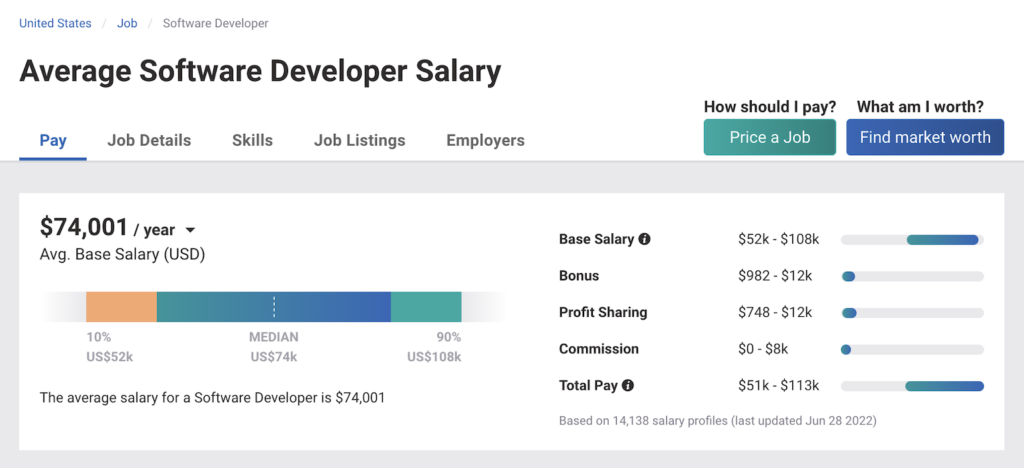Committed Developers vs. In-House Teams: Which Is Right for You?
The decision between using specialized developers and keeping an internal group is a substantial one that can impact the trajectory of your tasks and general company technique. On the other hand, in-house teams contribute to a cohesive business society and a nuanced understanding of long-lasting objectives.
Understanding Devoted Designers
The expanding need for specialized skills in the tech industry has led to the introduction of committed developers as a sensible service for numerous organizations. These specialists are typically gotten on a project basis, enabling business to take advantage of particular know-how without the lasting commitment connected with full-time hires. Dedicated programmers are often ingrained within a customer's team, giving flexibility and scalability to meet task requirements.
This design allows companies to access an international skill pool, which is especially useful in a quickly developing technical landscape. Committed designers can be sourced from numerous geographical places, making certain that firms can discover the appropriate ability at affordable prices. They usually bring a riches of experience and understanding, having actually serviced varied tasks across different markets.
In addition, specialized developers can concentrate specifically on the tasks at hand, boosting performance and efficiency. They are geared up to integrate seamlessly right into existing operations, working together very closely with in-house teams to accomplish task objectives. This method not only lowers the problem of recruitment and training yet also permits companies to remain dexterous, adapting promptly to altering market needs and technological developments.
Benefits of In-House Teams

Additionally, internal teams often tend to have a much deeper understanding of the company's mission, worths, and goals. This positioning can improve worker interaction and inspiration, as staff member really feel extra linked to their work and the company's success. Additionally, having a devoted in-house group allows for much better positioning of approaches and purposes, as these members are constantly concentrated on the company's priorities.
Internal groups also promote quicker decision-making processes, as they can respond much more rapidly to changes and obstacles. The established partnerships and experience with business protocols enable structured process and decreased miscommunication. Inevitably, the mix of a cohesive society, placement with organizational goals, and reliable communication makes internal groups an important asset for several organizations, especially those looking to cultivate long-lasting growth and advancement.
Price Considerations
When reviewing price factors to consider, both specialized programmers and in-house teams existing unique monetary ramifications for organizations. Involving dedicated developers commonly includes a pay-per-project or hourly rate model, which can be economical for businesses with changing task needs. This strategy enables versatility in scaling sources up or down, making sure that firms only pay for the solutions they require.
On the other hand, internal groups require repaired expenses, consisting of incomes, advantages, and overhead expenditures such as office and equipment. While this version uses better control and prompt accessibility of sources, it may lead to greater long-lasting expenses, especially if the work does not validate a permanent staff.
Moreover, firms ought to think about the surprise costs related to employment and training of in-house workers, which can further stress spending plans. In many cases, the time and sources ecommerce stores for sale invested in handling an internal group can interfere with the organization's core business objectives.

Task Monitoring and Versatility
Job monitoring and flexibility are vital variables that influence the choice in between specialized programmers and internal teams. Committed game app developer developers usually use a high degree of adaptability, allowing organizations to range sources up or down based on project demands. This dexterity can be specifically helpful for businesses experiencing rising and fall work or those seeking to introduce swiftly. Devoted teams commonly have actually developed processes for managing jobs properly, leveraging certain methods like Agile or Scrum, which assist in iterative development and versatility.

Inevitably, the choice in between in-house teams and devoted programmers rests on the desired degree of adaptability and the certain project management demands. Companies have to assess their functional characteristics, project complexity, and source schedule to identify which alternative lines up ideal with their strategic purposes.
Making the Right Choice
Selecting the best advancement approach-- in-house groups or devoted designers-- calls for a careful evaluation of different elements that align with a company's calculated objectives. Alternatively, in-house groups can supply much better continuity and integration with existing workers.
Next, assess your budget plan. Dedicated programmers frequently provide an affordable option for temporary tasks, while in-house groups may sustain greater long-lasting expenditures due to incomes, benefits, and overhead costs. Assess the degree of control and partnership wanted; in-house teams usually promote stronger communication and positioning with company culture.
Furthermore, consider the time structure. If prompt results are required, committed play google developer developers can be onboarded quickly, whereas building an internal group requires time for employment and training. Ultimately, evaluate the lasting vision of your organization. If continuous advancement is essential, spending in an in-house group may produce better returns over time. Eventually, the choice rests on a comprehensive evaluation of these factors, ensuring positioning with your firm's operational needs and total objectives.
Final Thought
In final thought, the decision between dedicated programmers and internal groups pivots on job requirements and business goals. Conversely, internal teams cultivate a natural society and deeper placement with long-lasting objectives.
The decision between using dedicated designers and maintaining an in-house group is a significant one that can influence the trajectory of your jobs and total service technique.Task administration and adaptability are essential factors that influence the choice between internal groups and devoted programmers. dedicated development team.In comparison, in-house teams might succeed in maintaining a constant job monitoring framework due to their experience with the company's society and long-term goals. Committed developers often provide an affordable option for temporary projects, while in-house teams may incur greater lasting costs due to incomes, advantages, and expenses prices.In conclusion, the decision between internal groups and dedicated developers hinges on task demands and business purposes